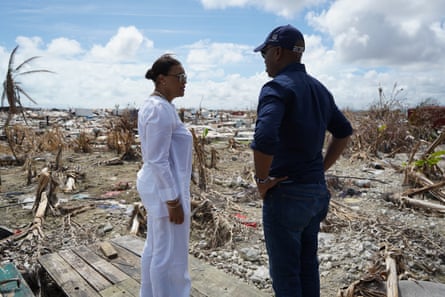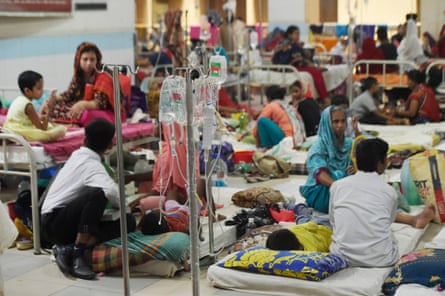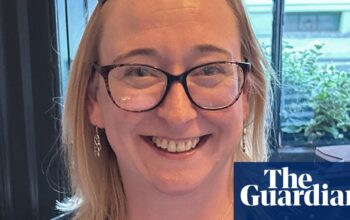Climate change is now the biggest concern facing health ministers in Commonwealth countries, the organisation’s secretary general has warned.
Patricia Scotland said it was a “reality today” rather than a problem of the future, with impacts such as heat stress and increases in insect-borne diseases particularly acute in smaller states.
“If you look at what’s happening in zoonotic diseases, if you look at what’s changing in terms of malaria, lots of dengue fever, chikungunya – all this is climate related,” she said.
The World Health Organization (WHO) estimates the climate crisis will cause about 250,000 extra deaths a year between 2030 and 2050 from malaria, malnutrition, diarrhoea and heat stress alone.
Referring to the international target of limiting the rise in global temperatures to 1.5C (2.7F) above pre-industrial levels, Lady Scotland said: “If you look at Tuvalu, we said in 2015, that it was ‘1.5 to stay alive’. That wasn’t a slogan, that was a reality [in] Tuvalu.
“We are now at 1.5 [celsius]. So every time the ministers leave Tuvalu, they are never totally confident that when they come back, their island will still be there. That is not the reality of tomorrow – that is their reality today.
“It worries me incredibly that the clock has ticked and ticked and ticked, and it’s running out,” she added.

Born on the Caribbean island of Dominica, Scotland moved to the UK with her family and grew up in London, going on to serve as attorney general during the last Labour government.
She has been secretary general of the Commonwealth since 2016, surviving an attempt to remove her by Boris Johnson two years ago and an earlier media storm over a refit of her residence.
Speaking at a meeting of Commonwealth health ministers in Geneva last month, during which the group committed to building climate-resilient health systems in the most vulnerable countries, Scotland listed a series of “shocks” that had put pressure on the 25 small island developing states (SIDS) that make up almost half of the Commonwealth’s membership.
They include the health and economic impacts of the Covid-19 pandemic, as well as debt problems and food insecurity – made worse by the conflicts in Ukraine and the Middle East.
Those factors made it harder to create the kind of strong, well-staffed health systems that could prove resilient in the face of the climate crisis, Scotland said.
The climate crisis was more pressing than threats from the “big killer” diseases such as heart attacks and strokes, pressure from antimicrobial resistance and the possibility of another pandemic, she said.
Commonwealth officials offer examples of climate-related health problems across the organisation and say they are not confined to the poorer member states – a 2019 paper warned that Canada was likely to see more “exotic” infectious diseases as well as more cases of locally endemic diseases such as West Nile virus.
This may help spur action, Scotland said, adding: “When I became secretary general in 2016, the difficulty we had in helping people to understand that [climate change] was omnipresent, was really tough.”
But she pointed to recent extreme weather in the UK, and said: “Now, people are starting to have just a little taste of what other people have been living.”
The Commonwealth had helped smaller member states access international funding to strengthen their health systems, Scotland said, including by improving access to digital health services for when people were unable to access face-to-face treatment.

The Commonwealth was also coordinating technological solutions such as hi-tech mosquito-surveillance devices and AI-based early-warning systems for outbreaks of dengue, she said.
Its ministerial meeting was held just ahead of the WHO’s World Health Assembly in Geneva, which saw countries agree that the WHO should focus on climate crisis as an escalating threat to health over the next four years.
“I’m a glass-half-full person,” Scotland added. “There’s no point in saying the world’s going to end – it’s only going to end if we let it.
“And those of us who can fight, need to fight and we need to fight now.”
Source: theguardian.com


